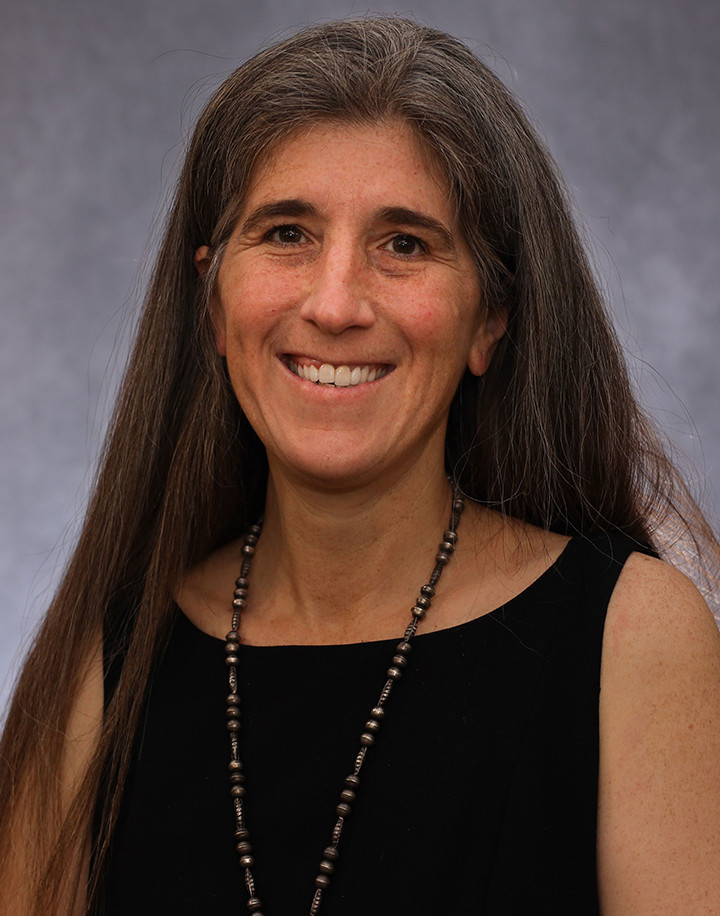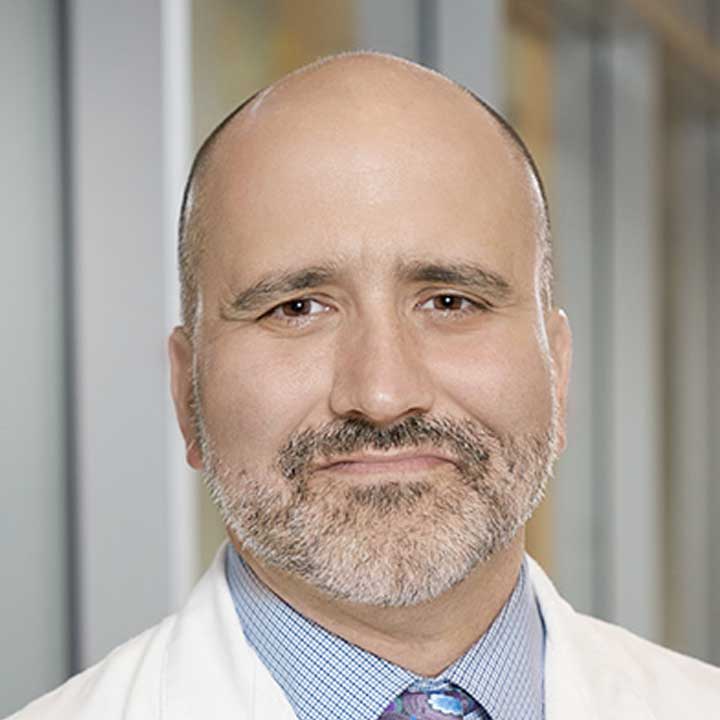HRD Testing in Advanced Ovarian Cancer
Episode 1, A Precision Medicine Approach for Advanced Ovarian Cancer
In the first episode of A Deep Dive into HRD Testing in Ovarian Cancer, a three-part podcast series sponsored by AstraZeneca, we’re speaking with Dr. Kathleen Moore about HRD testing in ovarian cancer and its clinical significance in helping aid precision medicine approaches.

Dr. Kathleen Moore is a Professor of Gynecologic Oncology at the University of Oklahoma Health Sciences Center, Associate Director of Clinical Research and Director of the Oklahoma TSET Phase I Program at the Stephenson Cancer Center. A graduate of the University of Washington School of Medicine, WA, Dr. Moore completed her residency in gynecology at the University Health Center of Pittsburgh in Pittsburgh, PA and completed a fellowship in gynecologic oncology at the University of Oklahoma College of Medicine in Oklahoma City, OK. She is board certified in obstetrics and gynecology as well as gynecologic oncology and hospice and palliative care.
For more information, visit: https://www.azprecisionmed.com/tumor-type/ovarian-cancer/hrd-testing.html
For patient resources, please visit TestForHRD.com.
This podcast does not necessarily reflect the opinions of AstraZeneca and are the spokeperson's opinions and experience.
Episode 2, HRD Testing Deep-Dive
In the second episode of A Deep Dive into HRD Testing in Ovarian Cancer, a three-part podcast series sponsored by AstraZeneca, we’re speaking with Dr. Erin Crane who will highlight how HRD testing provides helpful information to ovarian cancer patients.

Erin K. Crane, MD, MPH, is a gynecologic oncologist with Atrium Health Levine Cancer in Charlotte, North Carolina. A graduate of the SUNY Upstate Medical University in Syracuse, NY, Dr. Crane completed her residency at the University of Virginia and a fellowship at The University of Texas MD Anderson Cancer Center in Gynecologic Oncology. She is board certified by the American Board of Obstetrics and Gynecology in Gynecologic Oncology and Obstetrics and Gynecology. Dr. Crane is a Clinical Associate Professor of Obstetrics and Gynecology at the Wake Forest University School of Medicine.
For more information, visit https://www.azprecisionmed.com/tumor-type/ovarian-cancer/hrd-testing.html
For patient resources, please visit TestForHRD.com.
This podcast does not necessarily reflect the opinions of AstraZeneca and are the spokesperson's opinions and experience.
Episode 3, Better Informed Patient Journeys
In the third episode of A Deep Dive Into HRD Testing in Ovarian Cancer, a three-part podcast series sponsored by AstraZeneca, we’re speaking with Dr. David O’Malley, and Bobbie R, an ovarian cancer patient. Dr. O’Malley will highlight how HRD testing empowers ovarian cancer patients to make more informed decisions with their doctors to help guide their treatment journey, and Bobbie will provide insight into her experience with HRD testing.

Dr. David O’Malley is a professor in the department of Obstetrics and Gynecology at The Ohio State University College of Medicine and the director of the Division of Gynecologic Oncology at the OSUCCC – James. Dr. O’Malley earned his undergraduate degree at the University of Notre Dame, attended medical school at Wayne State University, completed his residency at Case Western Reserve University (MetroHealth) and the Cleveland Clinic Foundation, and fulfilled his gynecologic oncology fellowship at Yale University. He is an active member of numerous committees including the NCI Gynecologic Cancer Steering Committee’s Ovarian Task Force, NRG Oncology (Ovarian Cancer and Developmental Therapeutics Groups), and the American Society of Clinical Oncology. Dr. O’Malley was also appointed to the panel of the National Comprehensive Cancer Network (NCCN) Guidelines for Ovarian Cancer and serves as the ORIEN physician liaison for The Ohio State University Comprehensive Cancer Center.

Bobbie is a stage 3C ovarian cancer patient who lives in Rochester, New York. Bobbie is an animal rights activist, vegetarian, and exerciser who recently retired from the healthcare field, having worked as a registered nurse and owner of a healthcare staffing firm. Following her diagnosis in July of 2021, Bobbie participated in biomarker testing which indicated that she was breast cancer gene (BRCA) negative and homologous recombination deficiency (HRD) positive. After undergoing surgery and chemotherapy as first-line treatment, Bobbie’s oncologist explained that she was eligible for a poly-ADP ribose polymerase (PARP) inhibitor due to her HRD status and on March 7, 2022, Bobbie started on a PARP inhibitor for maintenance treatment. As she continues treatment in 2024, Bobbie celebrates over 45 years of marriage with her husband and looks forward to traveling the United States, reading good books, and spending time with her dogs.
For more information, visit https://www.azprecisionmed.com/tumor-type/ovarian-cancer/hrd-testing.html
For patient resources, please visit TestForHRD.com.
This podcast does not necessarily reflect the opinions of AstraZeneca and are the spokespeople's opinions and experiences.